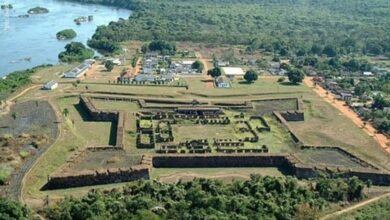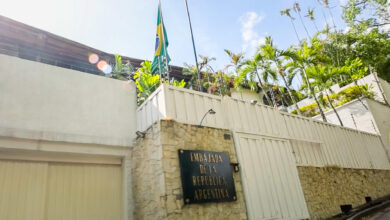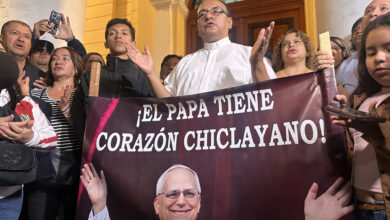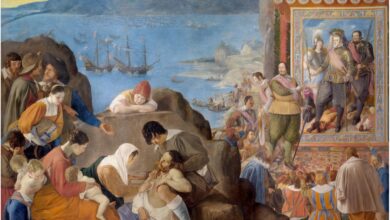Under pressure for sanctions, Venezuela sells oil to a small Turkish company
With the sanctions of the United States preventing Venezuela from selling oil to that country, the state oil company PDVSA has turned to several little-known buyers

Oil extraction pump intake / Reference image / Pixabay
Reuters | Marianna Parraga, Luc Cohen, and Deisy Buitrago
Listen to this article
With the sanctions of the United States preventing Venezuela from selling oil to that country, state oil company PDVSA has turned to several unknown buyers, including a small Turkish company without refineries but with links to Nicolas Maduro's government, according to internal documents and a source of the company.
Leer en español: Bajo presión por sanciones, Venezuela vende petróleo a pequeña empresa turca
Until recently, several of the world's largest oil and refining firms, including the US Chevron CVX.N and Valero Energy VLO.N, lined up to load Venezuelan crude, while PDVSA scrutinized its potential buyers to make sure they had payment capacity.
But the sanctions imposed in January by the United States in an effort to push Maduro out of power have driven many of those customers away. PDVSA's exports have plummeted more than a fifth since the sanctions, according to company records and data from Refinitiv Eikon. Its biggest buyers are Chinese and Indian companies.
Three sources, aware of the situation, told Reuters that a meeting of PDVSA's board of directors on March 14 temporarily removed the requirement that new clients and suppliers have at least two years of experience in the oil industry.
Neither PDVSA nor the Venezuelan Ministry of Petroleum responded to requests for comments.
Amid the changes, the Turkish company Grupo Iveex Insaat began buying Venezuelan oil in April, according to the PDVSA cargo schedule and the internal reports on exports and imports of the first half of the year reviewed by Reuters.
Records of the Chamber of Commerce of Istanbul show that the Iveex Insaat Group was formed less than a year ago with a capital of only 10,000 Turkish liras (about 1,775 dollars)* and the "residential construction" mentioned as its main activity. According to PDVSA's internal documents, Iveex was one of the five firms that applied to load Venezuelan enhanced crude from April to June. Iveex loaded four shipments of crude and Venezuelan products in April, equivalent to just under 8% of Venezuela's oil exports, nothing in May or June, according to PDVSA documents.
The records of the Turkish company show that Iveex Insaat is owned by Miguel Silva, a Venezuelan businessman who heads the Chamber of Exporters of Venezuela and who also worked in the Maduro administration in a position in the Ministry of Housing.
Also read: Disappointed Venezuelans lose patience with Guaido as Maduro hangs on
Reuters could not determine the terms under which Iveex Insaat is receiving Venezuelan oil. It was also not possible to confirm who would finally buy and refine the crude since the company does not have refineries.
Neither Iveex Insaat Group nor Silva responded to requests for comment.
A source from PDVSA, another from a shipping and maritime inspection firm – who declined to give their names – told Reuters that Iveex had agreed to deliver fuel to PDVSA in exchange for Venezuelan oil.
With its refining network working at low capacity due to delays in maintenance plans, lack of crude and frequent incidents, the OPEC partner nation has faced fuel shortage problems in recent months.
The other two companies that started to charter PDVSA crude since the sanctions were imposed are Melaj Offshore Corp, registered in Panama; and Sahara Energy, a unit of the Sahara Group, based in Nigeria. The two oil shipments of PDVSA were made shortly after the sanctions were announced, according to internal documents of the company.
Sahara Energy did not respond to emails and calls to request comments. Reuters could not find Melaj's contact information.
Read also: Clarity about the tortures is what the international community asks from Venezuela
Links with Turkey
The negotiations with Iveex underscore the growing trade links between Venezuela and Turkey, whose president Tayyip Erdogan has supported Maduro, along with Russia, Cuba, and China.
Turkey is one of the main buyers of gold in the South American country, which has become an important source of cash while oil production falls.
Silva registered Iveex Insaat with a Turkish partner named Erhan Kap on September 27, 2018, just a week after Maduro visited Istanbul.
Kap, who is a tour guide in Istanbul according to his social media profiles, declined to comment when contacted by phone.
According to Silva's biography on the Iveex Group's website, he has had several positions within the Maduro administration, which include the service in the Ministry of Housing in 2014 and the coordination of a government development plan for the Táchira state in 2013.
The Venezuelan Ministry of Information, which responds to requests from the media on behalf of the government, did not respond to an email seeking comment.
The Iveex website says that it is a "distribution and commercialization of raw materials" company focused on petroleum products and crude oil with offices in London, Istanbul, and Caracas.
He says he uses a "leased fleet of regional vessels."
While the website claims to have "long experience" in the trade and distribution of oil, a review of the site, using the Internet Archive, shows that references to the oil trade were added after November 2018.
According to Venezuelan oil company commercial documents, PDVSA sold barrels for the first time to Iveex Insaat in April, when it loaded the Seamuse tanker with 294,413 barrels of natural gasoline and light virgin naphtha for the Middle East.
Maybe you're interested in reading: With Venezuela in collapse, towns slip into primitive isolation
The ship has not yet unloaded and remains anchored near a port in Kuwait, according to Refinitiv Eikon. Days later, a similar load of virgin naphtha and natural gas was made for Iveex in the Vinjerac tanker.
The Turkish company also loaded Delta Kanaris and Delta Harmony tankers with more than 1 million barrels each of crude Hamaca, an improved crude that PDVSA has had problems selling because its main market was the United States.
However, these three vessels chartered by Iveex remain anchored in Venezuelan ports.
PDVSA has not allowed them to sail until Iveex delivers at least one of several fuel loads to offset the first cargo, said the PDVSA source and two shipping sources.
*(1 dollar = 5.6346 Turkish liras)





